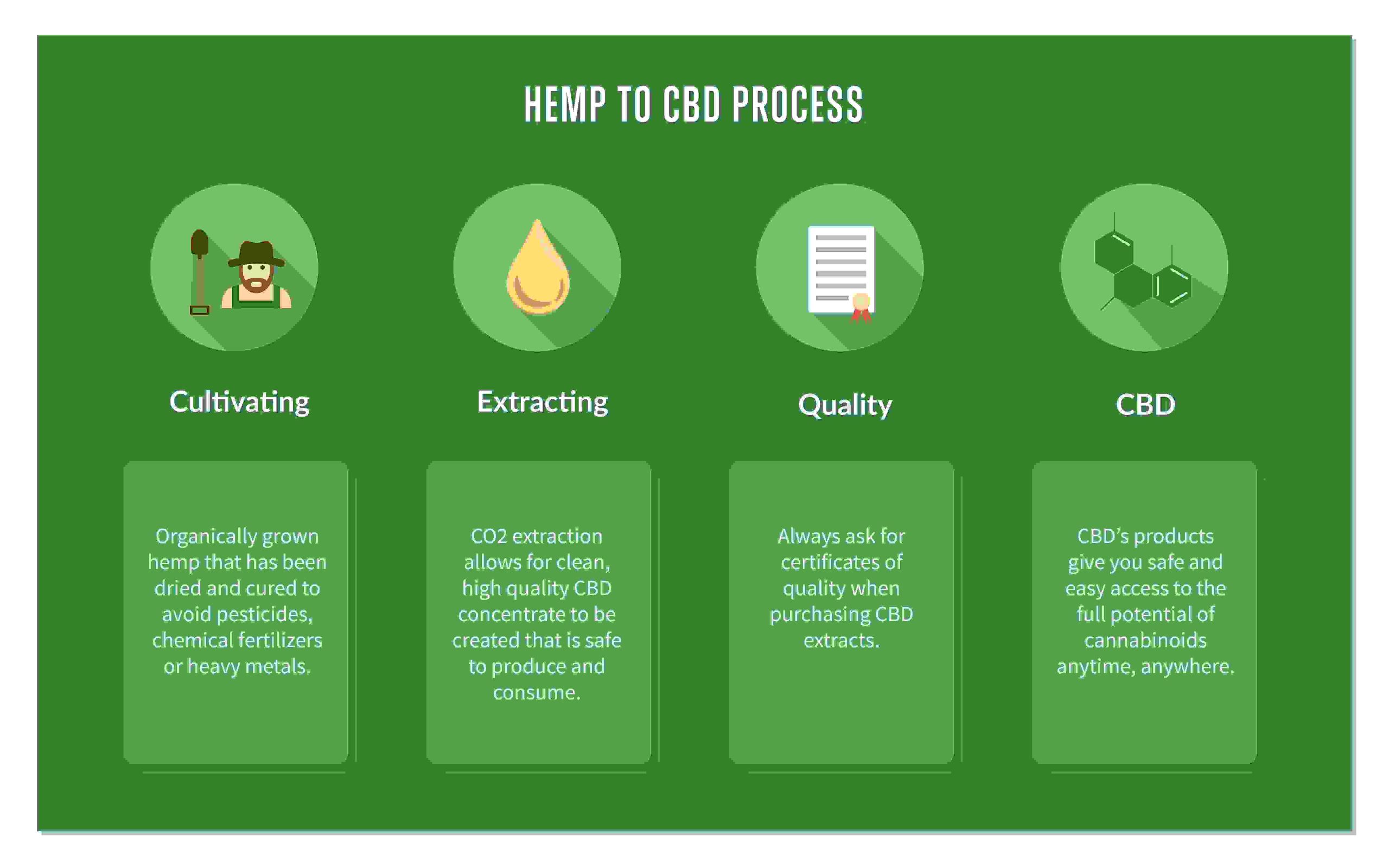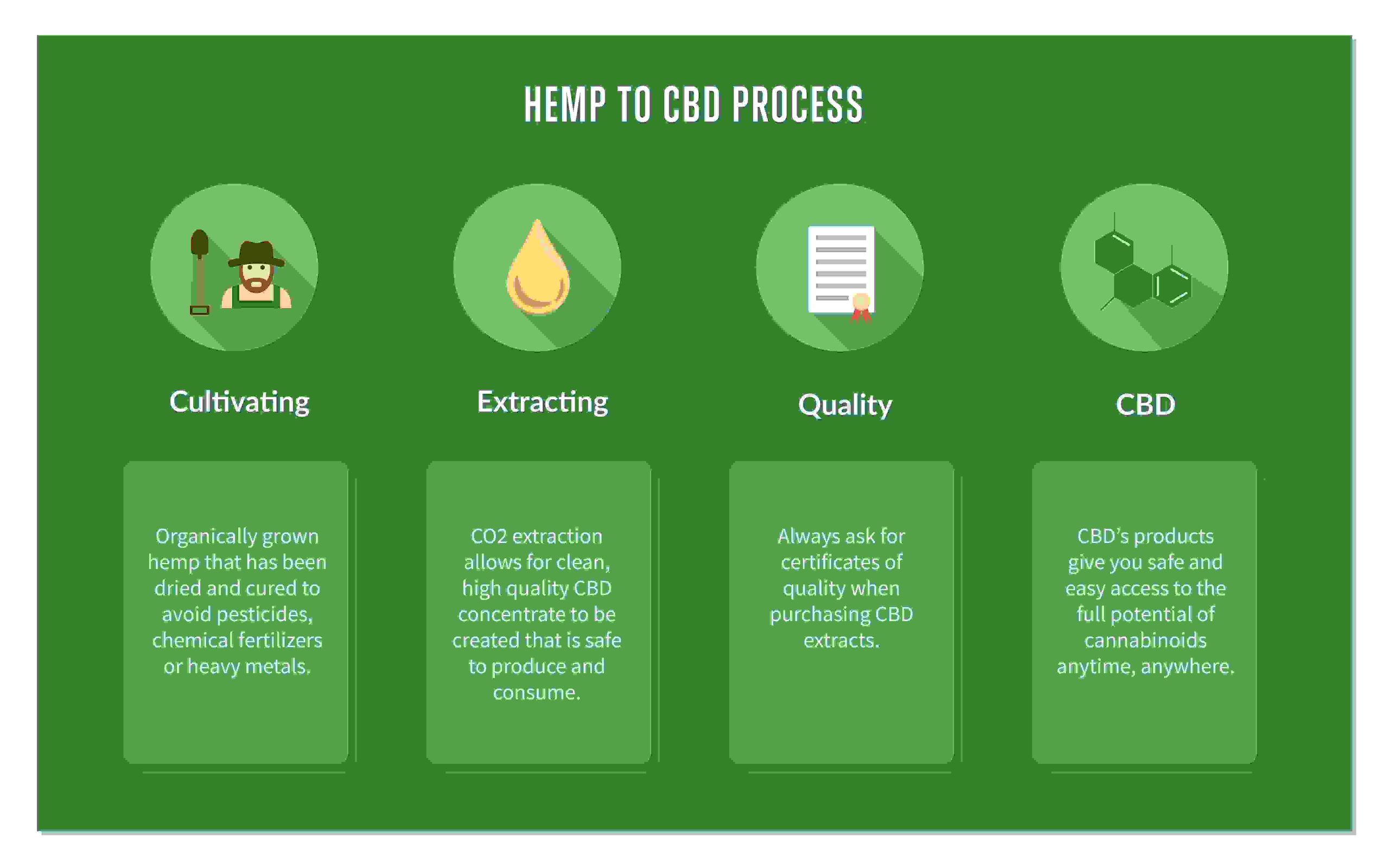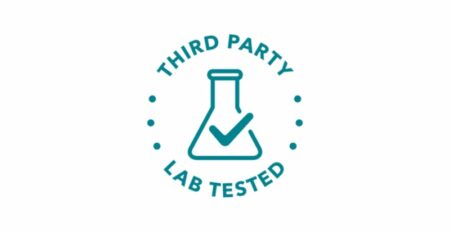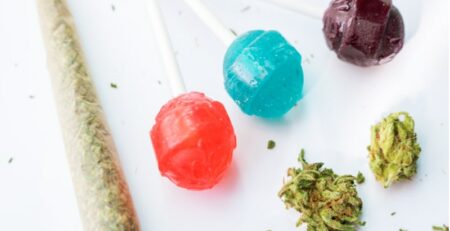CBD Extract: What It Is And Where To Get It?
CBD has existed plants for aeons, these plants have been used by humans for thousands of years, and in the last few decades, it has been gaining popularity in the UK as a dietary supplement and a medicine.
Where does it come from?
CBD or cannabidiol is made, like all other phytochemicals, through photosynthesis. This is where green chlorophyll cells harvest sunlight and use the energy released to break up carbon dioxide and water molecules to produce oxygen gas, sugars, and other useful molecules. The plant species that produces CBD is known as Cannabis sativa, native to Central Asia and has long been farmed across Asia, Europe and North Africa.
Specimens of C. sativa have been found at settlement sites as far back as the Neolithic – the late stone age, and it was likely used as a medicinal plant from this time, and probably further back. CBD is one of a family of compounds known as cannabinoids. These occur mostly in brittle, hair-like projections coming from the plant surface – called trichomes. The resin-like mixture of cannabinoids, terpenes, lipids and other substances is thought to protect the plant from insect grazers – the resin making it difficult for the small animals to chew on plant material – and ultraviolet (UV) sun damage.
CBD was first discovered during the Second World War by two organic chemists in the US. The absolute stereochemistry (actual structure) of CBD extract was then mapped in 1963 by a research group in Jerusalem. CBD can be extracted today in a number of ways, and more methods are being developed and patented continuously. Two ancient but still commonly used methods are oil and alcohol extraction. In these, a dilute solution is created by steeping plant materials in oil (olive, grapeseed, and most other edible oils are suitable), or in an alcohol solution.
These methods cause the CBD and other substances to disperse by osmosis from the plant materials into the liquid in which they are suspended. This is occasionally known as full spectrum oil due to its containing a number of the cannabinoid compounds, terpenes, and other oils as opposed to simply CBD. A newer method involves using pressurised carbon dioxide (CO2) along with extremely low temperatures to create a pure extract of CBD. This process has been called supercritical CO2 extraction. This is a way of obtaining a pure or almost pure CBD extract. This is more suitable for those who wish to ingest CBD with absolutely no other cannabinoids.
What does it do?
There has been much news and publicity surrounding CBD extract in the UK, and it can be difficult to separate the claims of it being a cure-all miracle drug from the hard evidence. CBD extract acts on the endocannabinoid system – a system of receptors concentrated in the brain and distributed throughout the body. It is thought that an endocannabinoid system in one form or another is common to all bilaterian animals – basically, animals that have a distinct front and back, and two sides, so pretty much every animal species apart from sea sponges!
CBD has been used since the 2000 in Canada to treat neuropathic pain brought on by MS – a degenerative disease of the muscles and nervous system. CBD extract has also been found to be anti-inflammatory. This property is known to be an important painkilling mechanism in many medicines and may be the reason CBD extract has been reported by many to be an effective painkiller. In a limited number of small studies, CBD has displayed anti-tumour properties, although further research is said to be needed in this particular area.
Many athletes including well known Mixed Martial Artists and a number of NFL players have claimed that CBD extract has shortened their recovery times between competitions and training sessions. In the area of psychopharmacology and mental health, some of the results are also promising. Rats in the laboratory have had their addiction to opioids improved by being given CBD by researchers. This is in line with many anecdotes from humans with opioid problems, who have used CBD to aid recovery.
Where can I get it?
The market for CBD oil products in the UK has exploded in recent years. What was available only as a home-made tincture in previous decades can now be obtained in a multitude of products. Most of these have a near-exact known concentration of CBD, and this will help in estimating a more accurate dosage. A quick internet search will reveal dozens of companies distributing CBD in the UK in a dizzying array of supplements, cleansing and rejuvenating products, and even food and drinks.
CBD extract has been added to lotions and gels for topical application – potentially useful for people involved in sports. CBD face cleansers and masks have also become very popular. CBD tinctures are still available. These can come with a mouth dropper, or a spray head for a fine mist. Transdermal patches have been developed by a small number of businesses, and these work in much the same way as the traditional stop smoking patches. Candies, coffee, tea, isotonic drinks and other consumables are also on the market, so there is an enormous range and variety of ways to get CBD extract and use it.






